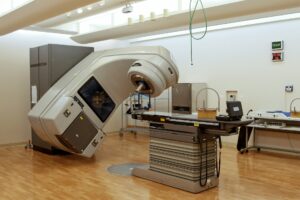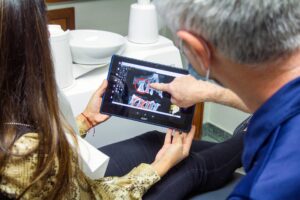The Future of Healthcare How AI is Revolutionizing the Medical Field

Artificial Intelligence( AI) is transubstantiating colorful diligence, and healthcare is no exception. The integration of AI into healthcare is enhancing diagnostics, treatment planning, patient care, and functional effectiveness. This blog explores the crucial areas where AI is making a significant impact and how it’s shaping the future of healthcare. The part of AI in Medical Diagnostics.
1. Enhanced delicacy and Speed. AI algorithms can dissect vast quantities of medical data snappily and directly. In radiology, AI- powered systems help in detecting anomalies inX-rays, MRIs, and CT reviews with high perfection. For case, AI tools can identify early signs of conditions like cancer, frequently before they’re conspicuous by mortal radiologists. This early discovery is pivotal for timely treatment and bettered patient issues.
2. individualized drug. AI enables the development of individualized treatment plans by assaying a case’s inheritable information, life, and medical history. Machine literacy models prognosticate how cases will respond to colorful treatments, allowing healthcare providers to knitter curatives to individual requirements. This approach not only enhances treatment efficacity but also minimizes adverse goods. AI in Treatment Planning
3. Surgical backing. AI is revolutionizing surgery with robotic systems that give perfection and control beyond mortal capabilities. These systems, guided by AI, help surgeons in performing complex procedures with enhanced delicacy. AI also plays a part in preoperative planning by bluffing surgeries and prognosticating implicit complications.

4. Drug Discovery and Development. The pharmaceutical assiduity is using AI to accelerate medicine discovery and development. AI algorithms dissect natural data to identify implicit medicine campaigners and prognosticate their efficacity and safety. This process significantly reduces the time and cost involved in bringing new medicines to request. perfecting Case Care with AI.
5. Remote Monitoring and Telehealth. AI- powered remote monitoring bias track cases’ vital signs and health criteria in real- time. These bias alert healthcare providers to any abnormalities, enabling timely interventions. Telehealth platforms use AI to grease remote consultations, making healthcare accessible to cases in remote areas.
6. Prophetic Analytics. AI uses prophetic analytics to prevision patient issues and help adverse events. For illustration, AI models can prognosticate the liability of readmission, allowing healthcare providers to take preventative measures. This visionary approach improves patient care and reduces healthcare costs. functional effectiveness in Healthcare
7. Streamlining executive. Tasks AI automates executive tasks similar as scheduling, billing, and claims processing, reducing the burden on healthcare staff. Natural language processing( NLP) algorithms prize applicable information from medical records, icing accurate attestation and coding.
8. Resource Allocation. AI helps in optimizing resource allocation by prognosticating patient admission rates and managing sanitarium coffers consequently. This ensures that healthcare installations are adequately staffed and equipped to handle patient loads efficiently.

9. Challenges and Ethical Considerations. While AI offers multitudinous benefits, it also poses challenges and ethical considerations. icing data sequestration and security is consummate, given the sensitive nature of medical information. also, there’s a need for translucency in AI algorithms to avoid impulses and insure fair treatment.
Conclusion
The integration of AI in healthcare is revolutionizing the assiduity, offering unknown advancements in diagnostics, treatment, patient care, and functional effectiveness. As AI technology continues to evolve, its implicit to transfigure healthcare is immense. By embracing AI, the healthcare assiduity can achieve better patient issues, enhance functional effectiveness, and pave the way for a healthier future.



